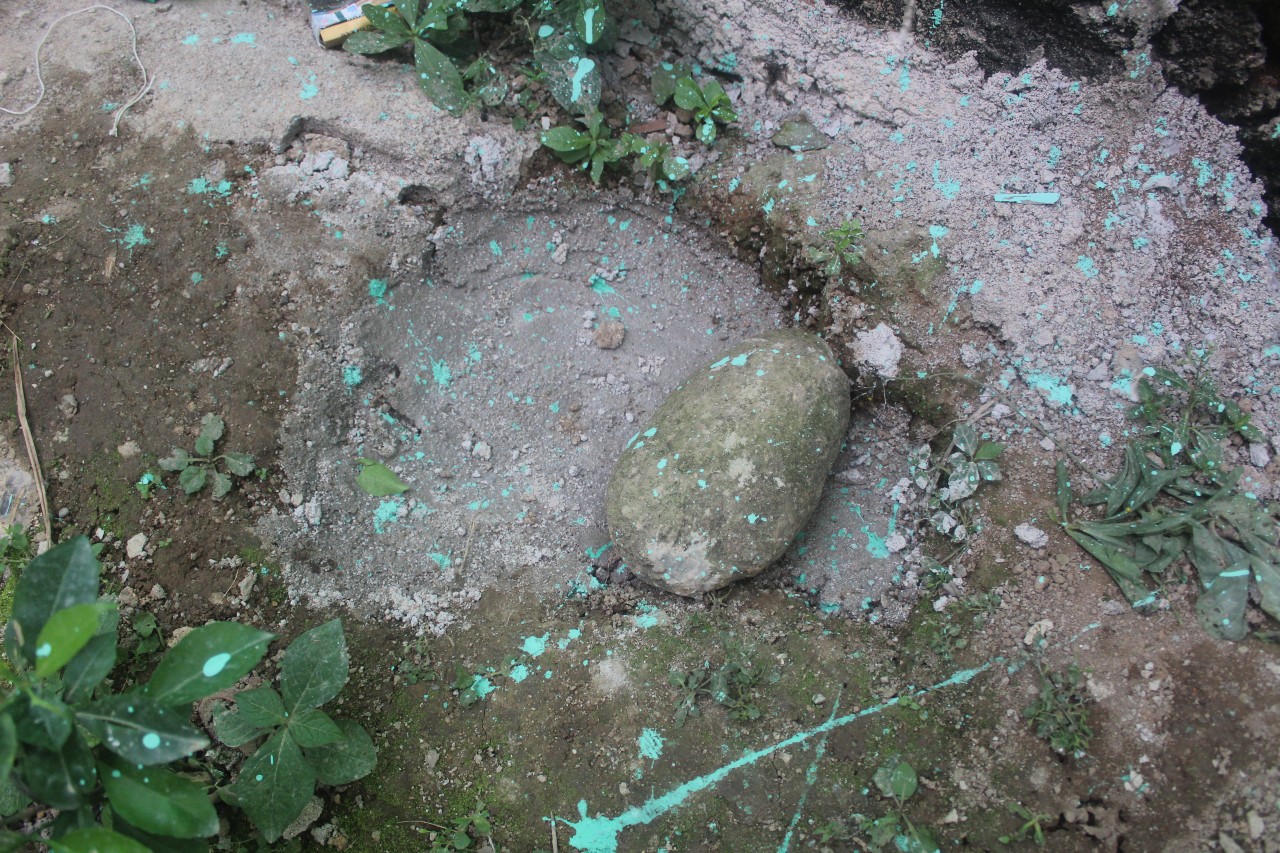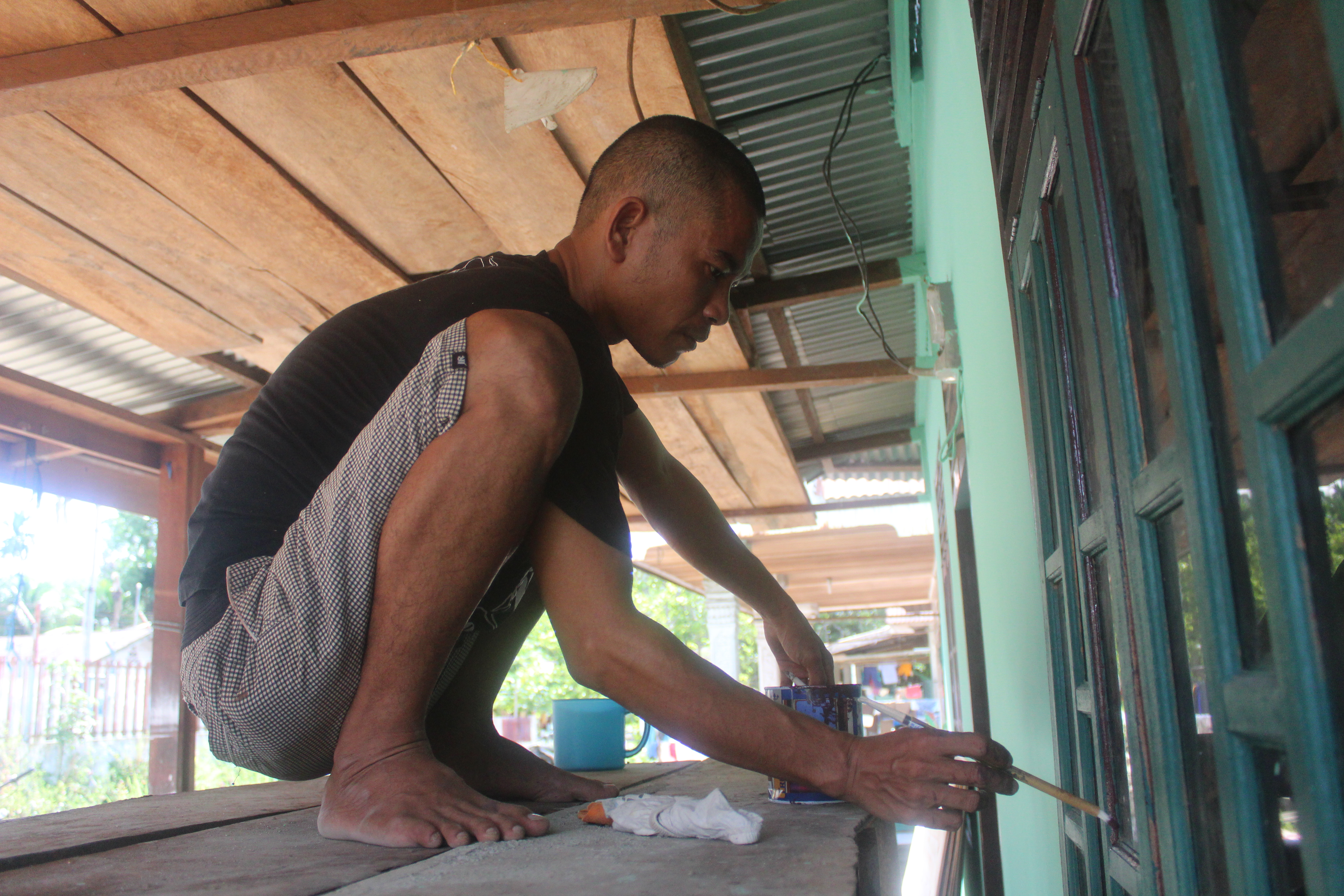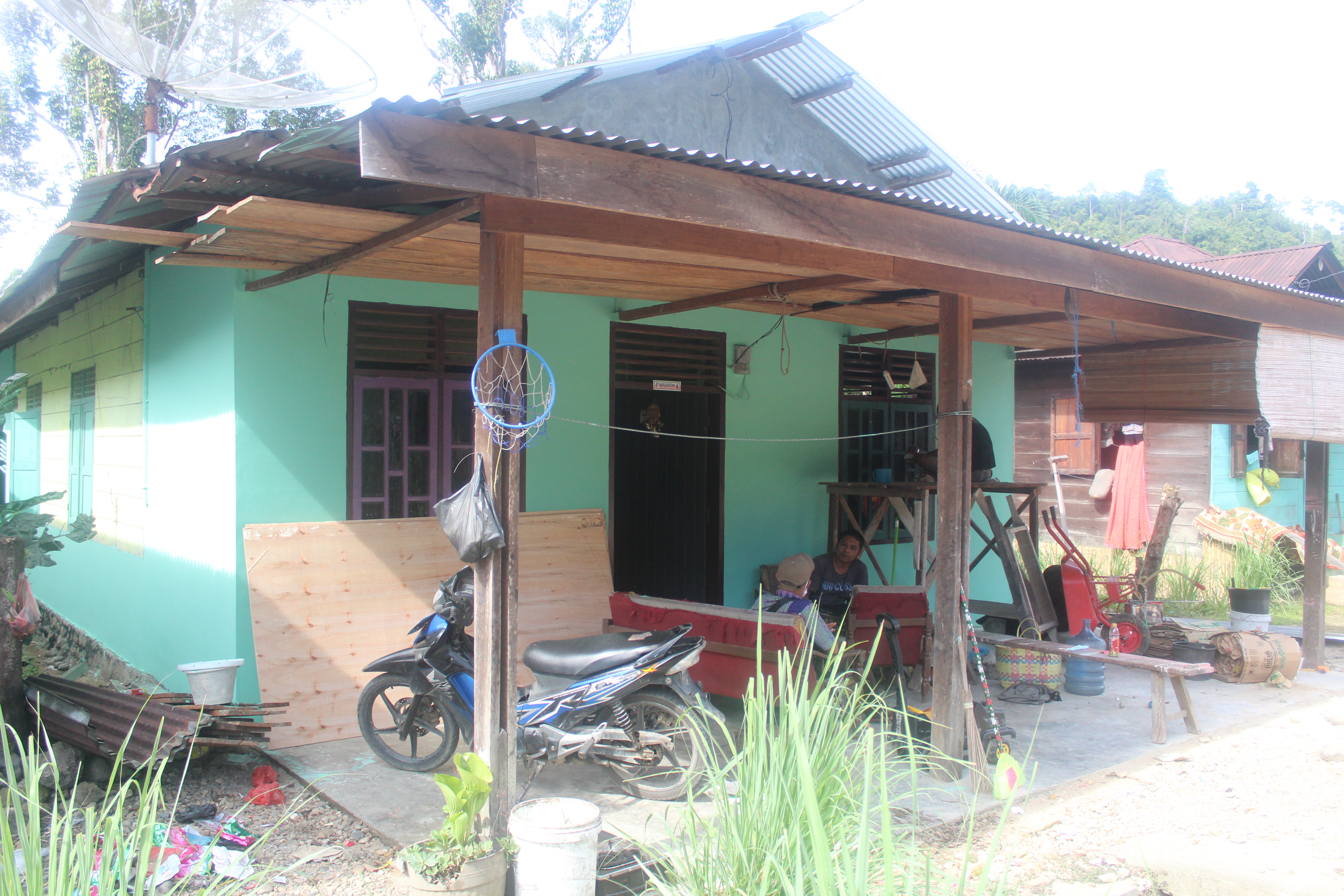He Sold a Meteorite That Hit His Home. Then Things Got Weird.
December 16, 2020After a meteorite crashed through his roof and tabloids reported a sale of $1.8 million, a coffin maker from a remote village was briefly the most famous man in Indonesia.
But Josua Hutagalung, a shy 34-year-old from North Sumatra province, now spends his days fending off interview requests, stressing about possible taxes, and worrying about potential criminals who don’t understand he isn’t actually a millionaire.
“I’m afraid my child will be kidnapped because they think I’m already rich, and they will ask for ransom. But you can see firsthand what it looks like, just ordinary, still like before, nothing is different,” he told VICE World News after agreeing to a rare in-person interview at his modest home, which he was busy painting.
If he actually had the money, “I would recruit at least five security guards” for protection, he added.
“Please don’t talk about that anymore. It’s closed. Let’s just chat normally,” he said when the topic first came up, smoking a cigarette nervously. When asked what he wanted to discuss instead, he said, “life, anything.” But soon he was back to clarifying points about the story that had dominated his life for months.
It started on Aug. 1 at around 5pm, when a meteorite about the size of a large watermelon crashed through a tin canopy on the side of his home in a hamlet of North Sumatra’s Kolang subdistrict. It fell with such force that it lodged itself about six inches into the ground. When he picked it up, it was still warm.

He filmed the black object with his phone, uploaded it on social media, and it quickly went viral. Local journalists descended on his home, and offers to buy the seemingly precious item poured in. A week later, Jared Collins, an American intermediary for buyers in the United States, contacted him and offered a price. After communicating with his colleagues, Collins flew from his home in Bali to Josua’s house.
They made the exchange and the meteorite was sent to the U.S., where it was verified as genuine, classified under the name of the area it was found in, “Kolang,” and listed on the website of the Meteoritical Society.
The Million-Dollar Question
The trouble began with reports in British tabloids that the price of the sale was about $1.8 million, turning Josua into an “instant” millionaire, as one story put it. The calculation appears to have been made by attempting to multiply the weight and online value estimates from other bits of meteorite that had fallen in the same area. Though meteorites are a fascinating window into the make-up and history of the universe, their actual value can fluctuate widely.
Josua initially told the BBC’s Indonesia service that he sold it for a little more than $14,000 not including an additional cost for repairing his damaged roof. But Collins, the intermediary, did not reveal the actual amount and dismissed the reported figures, inadvertently stoking more curiosity in the actual price.
“Clarifying the news that is currently circulating about the estimated value of the purchase of the meteorite, or the compensation given to the stone, we can be sure that the figures mentioned are completely untrue and incorrect,” he told VICE World News through Magnifique, a PR agency in Jakarta that also worked with Josua.
The value of the transaction was confidential as part of the agreement between Josua and the American buyers. The money paid out was neither the $14,163 figure mentioned in early reports nor $1.8 million.
“Currently there are no meteorites of such value, and of course no collector will pay that price,” Collins said through the agency.
Laurence Garvie, a meteorite expert from Arizona State University who did the classification for the Kolang meteorite, told the BBC in a later interview that it probably broke up upon entering the earth’s atmosphere, accounting for the different pieces that fell elsewhere. Describing it as an “extra-terrestrial mudball” made mostly of clay with iron, calcium, magnesium, aluminum and oxygen, Garvie said it might be worth $2.

But the story of untold riches had gotten too big and few people believed Josua any more. He admitted he was scared that someone might try to target him or his two kids for wealth he didn’t have. At the very least they might think he was lying or had been stupid enough to be scammed. The tale took on a life of its own, with his friends asking him, “Why do you work, you have money from stones?”
The media attention intensified and he went into hiding, directing reporters towards the PR agency, though some journalists just showed up at his house.

Stressed out
Josua agreed to meet with VICE World News a few weeks after the firestorm died down. But the morning a reporter arrived at his home, he wasn’t there. A middle-aged woman who said she was his aunt said Josua had been working at a palm oil plantation since 5am and would be back in the afternoon.
When he got home, he looked different from pictures online. He looked thinner, had cut his hair, and was chain-smoking. But he soon relaxed and was hospitable, offering cold drinks to visitors. He went on to say he had not accepted any recent requests to talk, and once made three reporters from Japan go home in vain without getting any comment from him. “There are already twenty media outlets that I have refused to do interviews with,” he said, showing the messages on his phone.
But as interest fades, would he finally reveal the real price of the meteorite?
Not exactly. He said it was enough to renovate the kitchen of his parents house, replace the roof that leaked after being hit by the falling meteorite, and make donations to a local church and his neighbors.
“Because I think it’s also their sustenance, the people in this village,” he said. He also touched up the gravesites of his parents.
At times, he threw out a few broad estimates, but never settled on an answer, and avoided attempts to get one with deflecting jokes.
Josua had no coffin orders in the afternoon, so after returning from the palm oil plantation, he filled his time with house painting, doing more repairs, and tidying up his kitchen.
“Look, nothing has changed. I only repaired the kitchen in the house, I am still an ordinary person, still like before, continuing the coffin business my parents started,” he said.
If he had more money, “maybe I would build a church, mosque or maybe run for mayor.”
In any event, he believes he has the right to keep the secret.
“Never mind, forget it, then let it pass,” he said.
